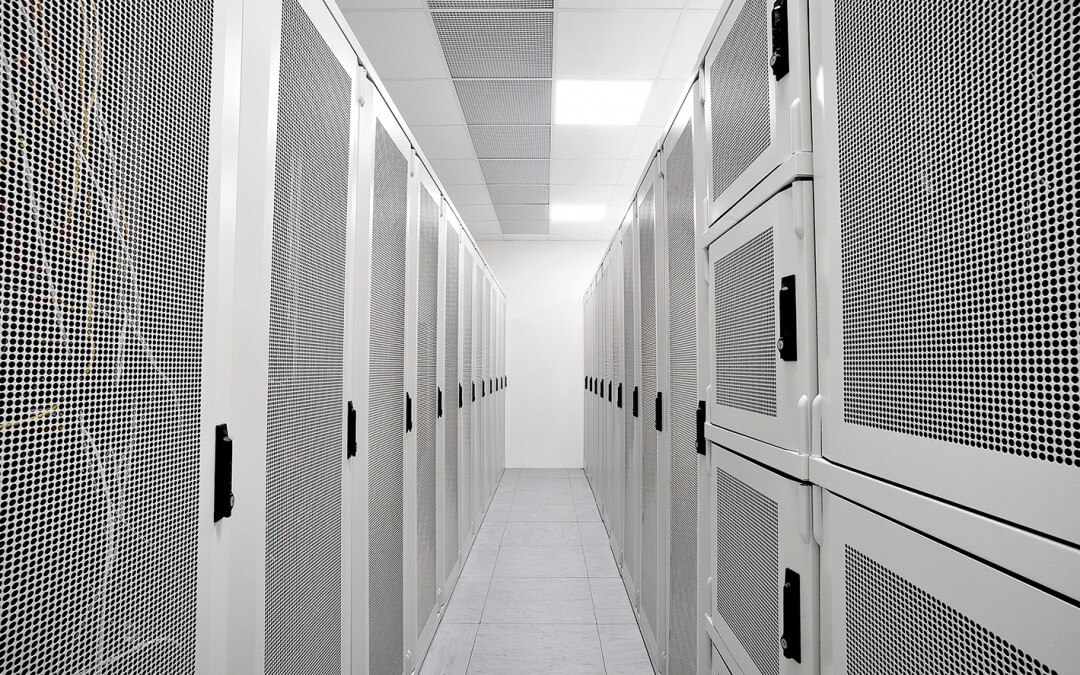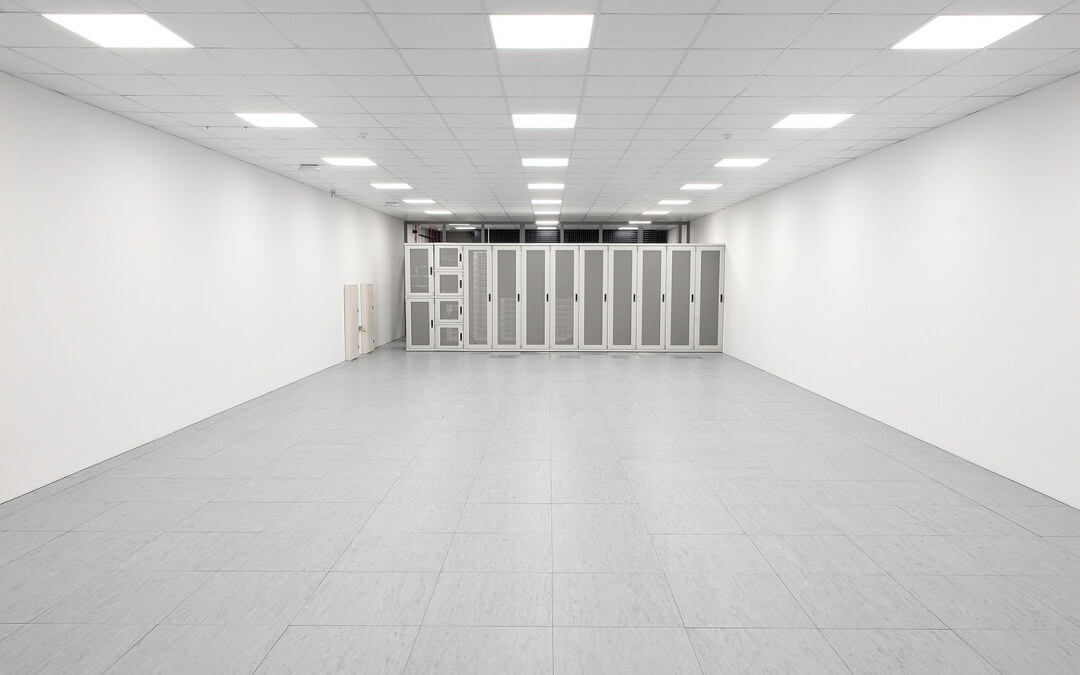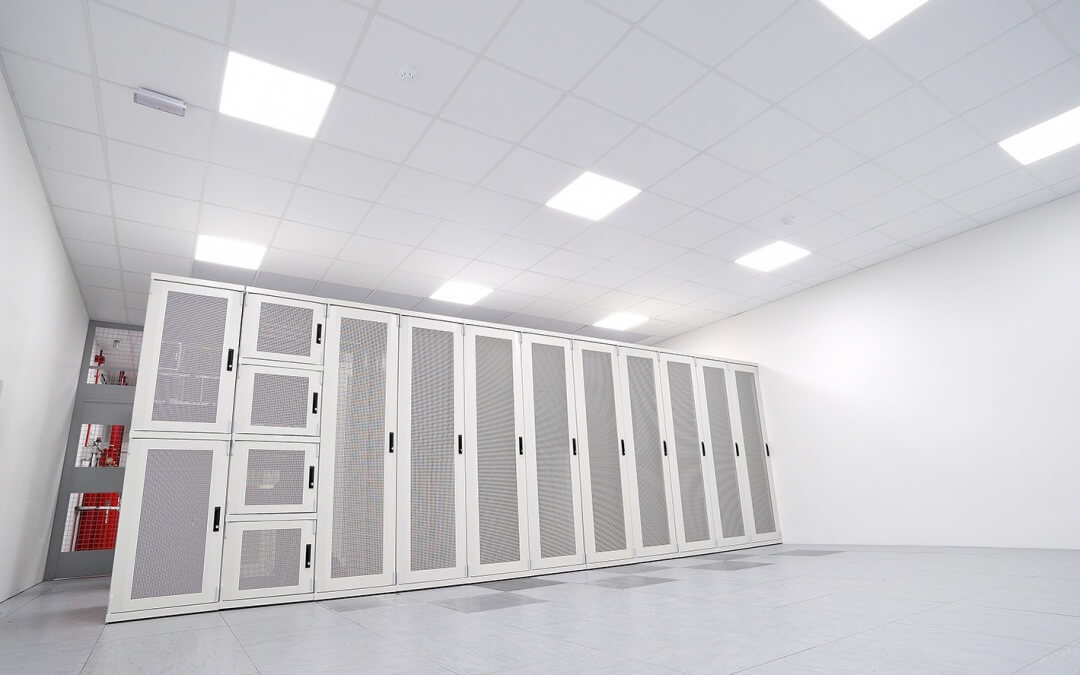
by LDeX Group | Jan 31, 2017 | Blog
Security and high availability are top priorities for businesses, so it is easy to feel bombarded with different solutions and ways to best store and secure their data. So how do you know what is the best option for your business? Here we compare two of the most popular solutions – colocation and on-premise.
The decision between colocation and on-premise solutions should be made based on the nature of your business and its aims.
Although both options allow you to use your own equipment and be in control of how and where your data is stored and managed, it is always worth weighing up the benefits of each before you commit to one.
Definitions
What is Colocation?: Colocation, or colo, is a data centre facility which allows customers to rent rackspace from a provider. You can then install your own servers and equipment which you can freely access to perform checks, maintenance or updates. The colocation provider will handle power, cooling, bandwidth and physical security.
What is on-premise?: With an on-premise solution, you store your servers and other equipment in your own building e.g. an office, or data centre. This means that you are responsible for all aspects of security, power, cooling etc.
On-premise storage is a good option for businesses that have the space, connectivity, security, and a dedicated IT team to constantly monitor for issues. For companies that have the initial capital that will allow them to regularly update infrastructure, on premise storage solutions can be suitable. Businesses who worry about handing over their sensitive data to an external provider also often prefer on premise solutions, as this means that their data is constantly visible and accessible.
However, colocation is often a more flexible option, as companies can scale their colocation space upwards, so that the amount of data storage available can easily grow with the business. This makes it a good choice for businesses who are quickly growing.
Colocation facilities often also come with extra physical space, cooling facilities and fast network access, which keeps data and critical applications safe and can increase productivity for companies.
Another major benefit of colocation is that it usually comes with thorough security measures. Colocation providers will often have a combination of physical and virtual security measures in place, such as CCTV, biometric security, and fire suppression systems. This type of security is becoming more and more important, particularly for businesses in the financial, legal or retail sectors, who often hold sensitive data and have to comply with certain regulations.
At LDeX, we offer adaptable colocation solutions to suit our customers in a wide range of industries.Our colocation solutions range from private racks to dedicated private suites in both our London and Manchester data centres.
Ultimately, the decision on how and where business should store their data and applications depends on your needs. Whether you’re looking for faster connectivity, peace of mind, or data storage that can expand with your business, LDeX has the solution for you.
Find out more about our colocation services here.
by LDeX Group | Jan 20, 2017 | Press
What does 2017 have in store for the data centre industry?
by LDeX Group | Jan 17, 2017 | Group News
Manchester-based data centre and colocation provider LDeX Group recorded its best quarter ever in Q4 2016.
Following a string of major contract wins across both the Manchester and London sites, the business brought in an additional £2million of contracted revenue over the last three months of the year.
As a result of this success, the company has begun a major expansion at its London facility, LDeX1, increasing the power availability by 1MW to accommodate these new customers and meet current customer demand.
Rob Garbutt, CEO at LDeX said: “2016 was a brilliant year for the business. We are proud to have made the move to Manchester and built such a strong portfolio of customers here already. To finish the year with a record quarter was the icing on the cake and this is testament to our skilled and hard-working team who continually strive to provide the best service for our customers.
“Having already expanded our data centre in Manchester, the London site expansion is the next step in our growth strategy. We are already on track to meet our financial targets this year and the results from the last few months are certainly motivation to continue in the same way. Despite the Manchester weather, 2017 looks bright already.”
by LDeX Group | Jan 16, 2017 | Press
https://bdaily.co.uk/technology/16-01-2017/record-quarter-for-ldex-group/
by LDeX Group | Jan 16, 2017 | Press
https://digitalisationworld.com/article/50353/1
by LDeX Group | Jan 16, 2017 | Press
http://www.manchestereveningnews.co.uk/business/business-news/ldex-records-best-ever-quarter-12449455
by LDeX Group | Jan 16, 2017 | Press
http://www.thebusinessdesk.com/northwest/news/744681-ldex-celebrates-best-ever-quarter.html?utm_source=newsletter&utm_medium=email&utm_campaign=NorthWest_16th_Jan_2017_-_Daily_E-mail

by LDeX Group | Dec 21, 2016 | Blog
It’s safe to say that 2016 has been a year full of surprises – but what will next year hold?
Data is being created and collected at a faster rate than ever before, and this rapid growth is only expected to continue. Therefore, the data centre industry is likely to evolve next year to meet the new storage needs of businesses.
With this in mind, we’ve taken a look at what 2017 might hold for the data centre industry:
- The cloud
Cloud solutions have become an increasingly popular choice for businesses, often due to their scalability and flexibility. These have become important requirements, particularly now that 25% of businessesplan to invest in big data over the next two years, and will need solutions that can handle large and rapidly changing amounts of data.
- Data centre security
The arrival of the new year means that the new General Data Protection Regulations (GDPR) will only be one year away. Coming into force in May 2018, these regulations will encourage a stricter enforcement of the data security measures within Europe. If companies don’t comply with these regulations, they may face extreme fines of up to €20 million, or 4% of global turnover.
Therefore, data centres and businesses alike will be looking to adjust their security measures in order to make sure that they don’t get on the wrong side of GDPR. In many cases, this will mean investing in disaster recovery solutions or looking for data storage solutions with strong physical and virtual security measures.
- Automation and machine learning
This year, we’ve seen data centres starting to embrace machine learning in order to become more efficient. In some cases, artificial intelligence and machine learning algorithms have cut data usage by as much as 15%.
Automated processes can allow decisions to be carried out quickly with minimal processing power, so we are likely to see many more data centres taking advantage of this next year.
- A greener industry and smarter data centres
Greener thinking may be a common New Year’s resolution across the data centre industry in 2017. This year, The Independent reported that data centres now consume about 3% of the global energy supply, and this amount is expected to triple over the next decade.
Data centres across the world are now taking steps to become more energy efficient, from being powered entirely by renewable energy, to designing micro-outdoor data centres to save energy. We are likely to see more of these innovations next year as the data centre industry strives to become more environmentally friendly.
If you’ll be looking for a new data centre or colocation solutions next year,find out more about us here.
by LDeX Group | Dec 1, 2016 | Press
https://www.joomag.com/magazine/dcn-december-2016/0411765001481647180?short

by LDeX Group | Nov 28, 2016 | Blog
If you’re a broker, you’ll most likely be painfully aware of SSP Worldwide’s outages this year. But, in case you haven’t heard, the insurance software solutions provider has had two outages this year which both stemmed from data centre or cloud issues. In September, many brokers who use the firm’s Pure Broking Platform were unable to trade for a fortnight, leaving them facing regulatory action from the Financial Conduct Authority.
These outages serve as a reminder of how important it is to have a contingency plan in place to protect business-critical data. Data is increasingly central to the day-to-day operations of businesses, and it’s crucial to consider what would happen if it was lost.
Using an external data centre provider to store important information comes with plenty of benefits, including a dedicated team of experts to monitor and fix any issues, scalable and flexible storage, and increased uptime. However, before entering into a contract with any third-party provider, companies should ensure that there is a contingency plan in place in case anything goes wrong.
At LDeX, we take disaster recovery very seriously and offer a range of services to help provide peace of mind for our customers. Our colocation services are available in both our LDeX1 and LDeX2 facilities, so that data stored in one site is always ready to go live if disaster strikes. Our hybrid cloud solutions, extra generators, cooling technology and disaster recovery solutions are also all designed to keep your important data safe – find out more here.



